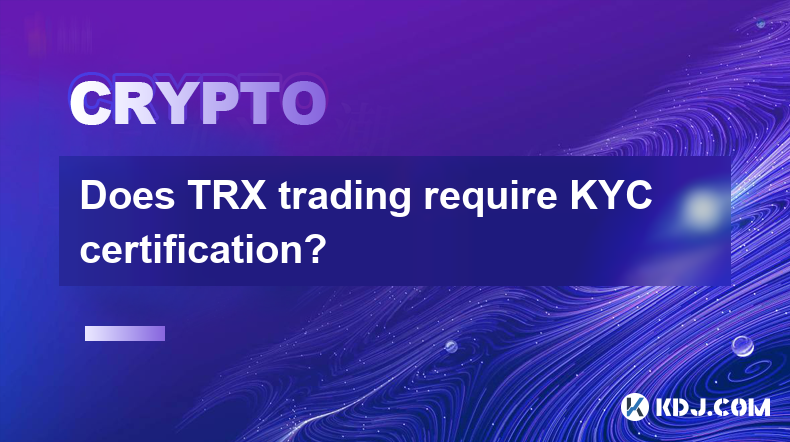-
 Bitcoin
Bitcoin $108,703.4836
0.45% -
 Ethereum
Ethereum $2,576.6839
1.58% -
 Tether USDt
Tether USDt $1.0001
0.00% -
 XRP
XRP $2.2924
-0.87% -
 BNB
BNB $660.2136
0.01% -
 Solana
Solana $151.4729
-0.29% -
 USDC
USDC $1.0000
0.00% -
 TRON
TRON $0.2866
0.04% -
 Dogecoin
Dogecoin $0.1698
0.82% -
 Cardano
Cardano $0.5831
0.13% -
 Hyperliquid
Hyperliquid $37.9814
-3.97% -
 Bitcoin Cash
Bitcoin Cash $503.9489
1.93% -
 Sui
Sui $2.8994
0.74% -
 Chainlink
Chainlink $13.5429
0.38% -
 UNUS SED LEO
UNUS SED LEO $9.0693
-0.19% -
 Stellar
Stellar $0.2524
0.15% -
 Avalanche
Avalanche $18.1959
1.02% -
 Shiba Inu
Shiba Inu $0.0...01180
1.48% -
 Toncoin
Toncoin $2.7601
-0.76% -
 Hedera
Hedera $0.1606
0.96% -
 Litecoin
Litecoin $86.6105
0.26% -
 Monero
Monero $315.7691
-0.56% -
 Polkadot
Polkadot $3.3911
0.25% -
 Dai
Dai $1.0001
0.03% -
 Ethena USDe
Ethena USDe $1.0002
0.02% -
 Bitget Token
Bitget Token $4.3076
-0.05% -
 Uniswap
Uniswap $7.5901
3.66% -
 Aave
Aave $288.0954
0.35% -
 Pepe
Pepe $0.0...01002
1.64% -
 Pi
Pi $0.4578
0.09%
Does TRX trading require KYC certification?
KYC requirements for trading TRX vary by platform and jurisdiction; while centralized exchanges like Binance and Coinbase mandate it, DEXs and P2P platforms offer alternatives without KYC.
Apr 22, 2025 at 04:07 am

The question of whether trading TRX (Tron) requires KYC (Know Your Customer) certification is one that many cryptocurrency enthusiasts often ponder. The answer to this question largely depends on the platform you choose to trade on, the jurisdiction you are located in, and the specific regulations that govern those platforms. In this article, we will delve into the intricacies of KYC requirements for TRX trading, examining various platforms, the process of KYC, and the implications of these requirements for traders.
Understanding KYC and Its Importance
KYC, or Know Your Customer, is a process used by businesses to verify the identity of their clients. In the context of cryptocurrency trading, KYC is essential for preventing fraud, money laundering, and other illegal activities. Exchanges that implement KYC procedures are better equipped to comply with regulatory requirements and ensure a safer trading environment for their users.
KYC typically involves collecting personal information such as your name, address, and government-issued identification. This information is used to confirm that you are who you claim to be and that you are not involved in any illicit activities. While KYC can be seen as an inconvenience, it plays a crucial role in maintaining the integrity of the cryptocurrency market.
TRX Trading Platforms and KYC Requirements
Different cryptocurrency exchanges have varying policies regarding KYC. Let's take a look at some popular platforms and their KYC requirements for trading TRX.
Binance
Binance, one of the largest cryptocurrency exchanges in the world, requires KYC verification for its users. To trade TRX on Binance, you must complete the KYC process. Here’s how you can do it:
- Sign up for a Binance account.
- Navigate to the "User Center" and select "Identification."
- Choose your country of residence and follow the prompts to submit your personal information and identification documents.
- Wait for the verification process to be completed. Once approved, you can trade TRX and other cryptocurrencies on Binance.
Binance's KYC process is designed to ensure compliance with international regulations and to protect its users from potential risks.
Coinbase
Coinbase, another prominent exchange, also mandates KYC for trading TRX. The process is similar to that of Binance:
- Create a Coinbase account.
- Go to the "Settings" section and click on "Identity Verification."
- Enter your personal details and upload the required identification documents.
- Await approval from Coinbase. Once verified, you can proceed to trade TRX.
Coinbase’s stringent KYC requirements are part of its commitment to regulatory compliance and user safety.
KuCoin
KuCoin offers a slightly different approach. While it does not require KYC for basic trading, it does mandate it for higher withdrawal limits and advanced features. To trade TRX on KuCoin with full access:
- Register for a KuCoin account.
- Access the "Account" section and click on "KYC Verification."
- Provide your personal information and upload the necessary documents.
- Complete the verification process. Once verified, you will have access to higher withdrawal limits and additional features.
KuCoin’s tiered KYC system allows users to choose the level of verification that suits their needs.
Jurisdictional Variations in KYC Requirements
The requirement for KYC when trading TRX can also vary depending on your geographical location. Different countries have different regulations regarding cryptocurrency trading, and these regulations can influence the KYC policies of exchanges.
For instance, in the United States, exchanges are subject to strict regulations from bodies like the Securities and Exchange Commission (SEC) and the Financial Crimes Enforcement Network (FinCEN). As a result, U.S.-based exchanges typically have robust KYC processes in place.
In contrast, some countries with less stringent regulations may have exchanges that do not require KYC for trading TRX. However, trading on such platforms can come with increased risks, as they may be more susceptible to fraud and other illegal activities.
The Impact of KYC on TRX Trading
The implementation of KYC has several implications for TRX traders. On one hand, KYC can enhance the security and legitimacy of trading platforms, thereby increasing user trust and confidence. On the other hand, it can also be seen as a barrier to entry for some users, particularly those who value their privacy.
Enhanced Security and Compliance
By requiring KYC, exchanges can better monitor and prevent fraudulent activities. This not only protects the platform but also its users. For TRX traders, this means a safer trading environment where they can be more confident in the integrity of their transactions.
Privacy Concerns
For some traders, the requirement to provide personal information can be a significant concern. Privacy-focused individuals may be hesitant to trade on platforms that mandate KYC, as they may not want to share their personal details with third parties.
Accessibility and Inclusivity
KYC requirements can also impact the accessibility of TRX trading. Users who do not have access to the necessary identification documents or who are located in regions with strict regulations may find it more challenging to trade TRX. This can limit the inclusivity of the cryptocurrency market.
Alternatives to Traditional Exchanges
For those who wish to avoid KYC requirements altogether, there are alternatives to traditional exchanges. Decentralized exchanges (DEXs) and peer-to-peer (P2P) platforms offer ways to trade TRX without the need for KYC.
Decentralized Exchanges (DEXs)
DEXs operate on blockchain technology and allow users to trade directly with one another without the need for an intermediary. Some popular DEXs that support TRX trading include:
- Uniswap
- SushiSwap
- PancakeSwap
To trade TRX on a DEX, you typically need to:
- Connect your cryptocurrency wallet to the DEX platform.
- Select TRX and the cryptocurrency you wish to trade it for.
- Enter the amount you want to trade and confirm the transaction.
DEXs provide a way to trade TRX without KYC, but they come with their own set of risks, such as potential smart contract vulnerabilities and less liquidity compared to centralized exchanges.
Peer-to-Peer (P2P) Platforms
P2P platforms facilitate direct trading between users, often without the need for KYC. Some P2P platforms that support TRX trading include:
- LocalBitcoins
- Paxful
To trade TRX on a P2P platform, you generally need to:
- Create an account on the P2P platform.
- Browse available offers for TRX and select one that meets your requirements.
- Initiate the trade and follow the platform’s instructions to complete it.
P2P trading can offer more flexibility and privacy, but it also requires a higher level of trust between trading parties and may involve more risk.
Frequently Asked Questions
Q: Can I trade TRX anonymously on centralized exchanges?
A: It is generally not possible to trade TRX anonymously on centralized exchanges that require KYC. If you wish to trade anonymously, you may need to use decentralized exchanges or peer-to-peer platforms that do not require KYC.
Q: Are there any risks associated with trading TRX on platforms without KYC?
A: Yes, trading on platforms without KYC can come with increased risks, such as higher exposure to fraud, scams, and money laundering. It is essential to conduct thorough research and exercise caution when using such platforms.
Q: How long does the KYC verification process typically take?
A: The duration of the KYC verification process can vary depending on the exchange and the volume of verification requests they are processing. It can take anywhere from a few hours to several days. Some exchanges offer expedited verification for a fee.
Q: Can I use a VPN to bypass KYC requirements on centralized exchanges?
A: Using a VPN to bypass KYC requirements is not recommended and can be against the terms of service of many exchanges. It may also lead to your account being suspended or banned. Always comply with the KYC policies of the platform you are using.
Disclaimer:info@kdj.com
The information provided is not trading advice. kdj.com does not assume any responsibility for any investments made based on the information provided in this article. Cryptocurrencies are highly volatile and it is highly recommended that you invest with caution after thorough research!
If you believe that the content used on this website infringes your copyright, please contact us immediately (info@kdj.com) and we will delete it promptly.
- Onyxcoin (XCN) vs. Solana (SOL): A Promising Bet in the Crypto Game?
- 2025-07-09 00:30:12
- CoreWeave's Bold Bet: How AI is Reshaping Bitcoin Mining
- 2025-07-09 00:30:12
- Coinbase (COIN) IPO Flashback: Is the Rally Overextended or Just Getting Started?
- 2025-07-08 22:50:12
- Bitcoin Price, Elon Musk, and BTCBULL: A Bullish Trifecta?
- 2025-07-09 00:10:12
- Toonie Trouble: Spotting Fakes Like an Expert
- 2025-07-08 22:50:12
- Coinbase, Crypto Stocks, and Ozak AI: Riding the Web3 Wave in Style
- 2025-07-08 23:10:14
Related knowledge

How to customize USDT TRC20 mining fees? Flexible adjustment tutorial
Jun 13,2025 at 01:42am
<h3>Understanding USDT TRC20 Mining Fees</h3><p>Mining fees on the TRON (TRC20) network are essential for processing transactions. U...

USDT TRC20 transaction is stuck? Solution summary
Jun 14,2025 at 11:15pm
<h3>Understanding USDT TRC20 Transactions</h3><p>When users mention that a USDT TRC20 transaction is stuck, they typically refer to ...

How to cancel USDT TRC20 unconfirmed transactions? Operation guide
Jun 13,2025 at 11:01pm
<h3>Understanding USDT TRC20 Unconfirmed Transactions</h3><p>When dealing with USDT TRC20 transactions, it’s crucial to understand w...

How to check USDT TRC20 balance? Introduction to multiple query methods
Jun 21,2025 at 02:42am
<h3>Understanding USDT TRC20 and Its Importance</h3><p>USDT (Tether) is one of the most widely used stablecoins in the cryptocurrenc...

What to do if USDT TRC20 transfers are congested? Speed up trading skills
Jun 13,2025 at 09:56am
<h3>Understanding USDT TRC20 Transfer Congestion</h3><p>When transferring USDT TRC20, users may occasionally experience delays or co...

The relationship between USDT TRC20 and TRON chain: technical background analysis
Jun 12,2025 at 01:28pm
<h3>What is USDT TRC20?</h3><p>USDT TRC20 refers to the Tether (USDT) token issued on the TRON blockchain using the TRC-20 standard....

How to customize USDT TRC20 mining fees? Flexible adjustment tutorial
Jun 13,2025 at 01:42am
<h3>Understanding USDT TRC20 Mining Fees</h3><p>Mining fees on the TRON (TRC20) network are essential for processing transactions. U...

USDT TRC20 transaction is stuck? Solution summary
Jun 14,2025 at 11:15pm
<h3>Understanding USDT TRC20 Transactions</h3><p>When users mention that a USDT TRC20 transaction is stuck, they typically refer to ...

How to cancel USDT TRC20 unconfirmed transactions? Operation guide
Jun 13,2025 at 11:01pm
<h3>Understanding USDT TRC20 Unconfirmed Transactions</h3><p>When dealing with USDT TRC20 transactions, it’s crucial to understand w...

How to check USDT TRC20 balance? Introduction to multiple query methods
Jun 21,2025 at 02:42am
<h3>Understanding USDT TRC20 and Its Importance</h3><p>USDT (Tether) is one of the most widely used stablecoins in the cryptocurrenc...

What to do if USDT TRC20 transfers are congested? Speed up trading skills
Jun 13,2025 at 09:56am
<h3>Understanding USDT TRC20 Transfer Congestion</h3><p>When transferring USDT TRC20, users may occasionally experience delays or co...

The relationship between USDT TRC20 and TRON chain: technical background analysis
Jun 12,2025 at 01:28pm
<h3>What is USDT TRC20?</h3><p>USDT TRC20 refers to the Tether (USDT) token issued on the TRON blockchain using the TRC-20 standard....
See all articles

























































































